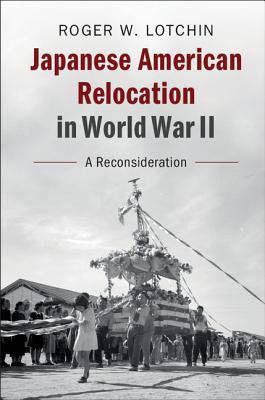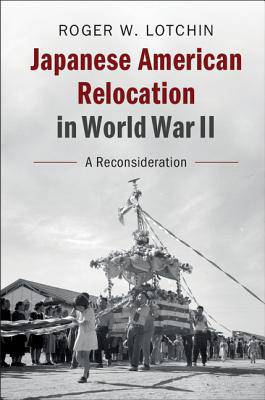
Bedankt voor het vertrouwen het afgelopen jaar! Om jou te bedanken bieden we GRATIS verzending (in België) aan op alles gedurende de hele maand januari.
- Afhalen na 1 uur in een winkel met voorraad
- In januari gratis thuislevering in België
- Ruim aanbod met 7 miljoen producten
Bedankt voor het vertrouwen het afgelopen jaar! Om jou te bedanken bieden we GRATIS verzending (in België) aan op alles gedurende de hele maand januari.
- Afhalen na 1 uur in een winkel met voorraad
- In januari gratis thuislevering in België
- Ruim aanbod met 7 miljoen producten
Zoeken
€ 168,95
+ 337 punten
Uitvoering
Omschrijving
In this revisionist history of the United States government relocation of Japanese-American citizens during World War II, Roger W. Lotchin challenges the prevailing notion that racism was the cause of the creation of these centers. After unpacking the origins and meanings of American attitudes toward the Japanese-Americans, Lotchin then shows that Japanese relocation was a consequence of nationalism rather than racism. Lotchin also explores the conditions in the relocation centers and the experiences of those who lived there, with discussions on health, religion, recreation, economics, consumerism, and theater. He honors those affected by uncovering the complexity of how and why their relocation happened, and makes it clear that most Japanese-Americans never went to a relocation center. Written by a specialist in US home front studies, this book will be required reading for scholars and students of the American home front during World War II, Japanese relocation, and the history of Japanese immigrants in America.
Specificaties
Betrokkenen
- Auteur(s):
- Uitgeverij:
Inhoud
- Aantal bladzijden:
- 362
- Taal:
- Engels
Eigenschappen
- Productcode (EAN):
- 9781108419291
- Verschijningsdatum:
- 3/05/2018
- Uitvoering:
- Hardcover
- Formaat:
- Genaaid
- Afmetingen:
- 164 mm x 235 mm
- Gewicht:
- 612 g

Alleen bij Standaard Boekhandel
+ 337 punten op je klantenkaart van Standaard Boekhandel
Beoordelingen
We publiceren alleen reviews die voldoen aan de voorwaarden voor reviews. Bekijk onze voorwaarden voor reviews.









